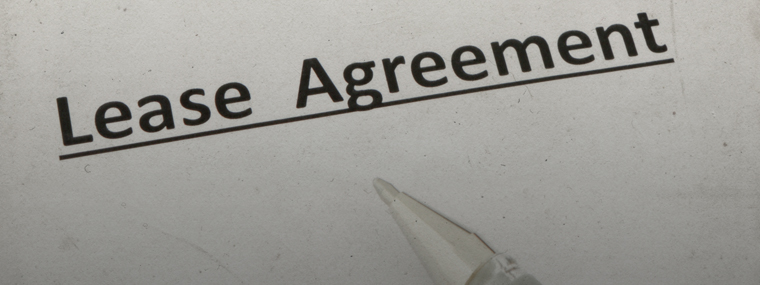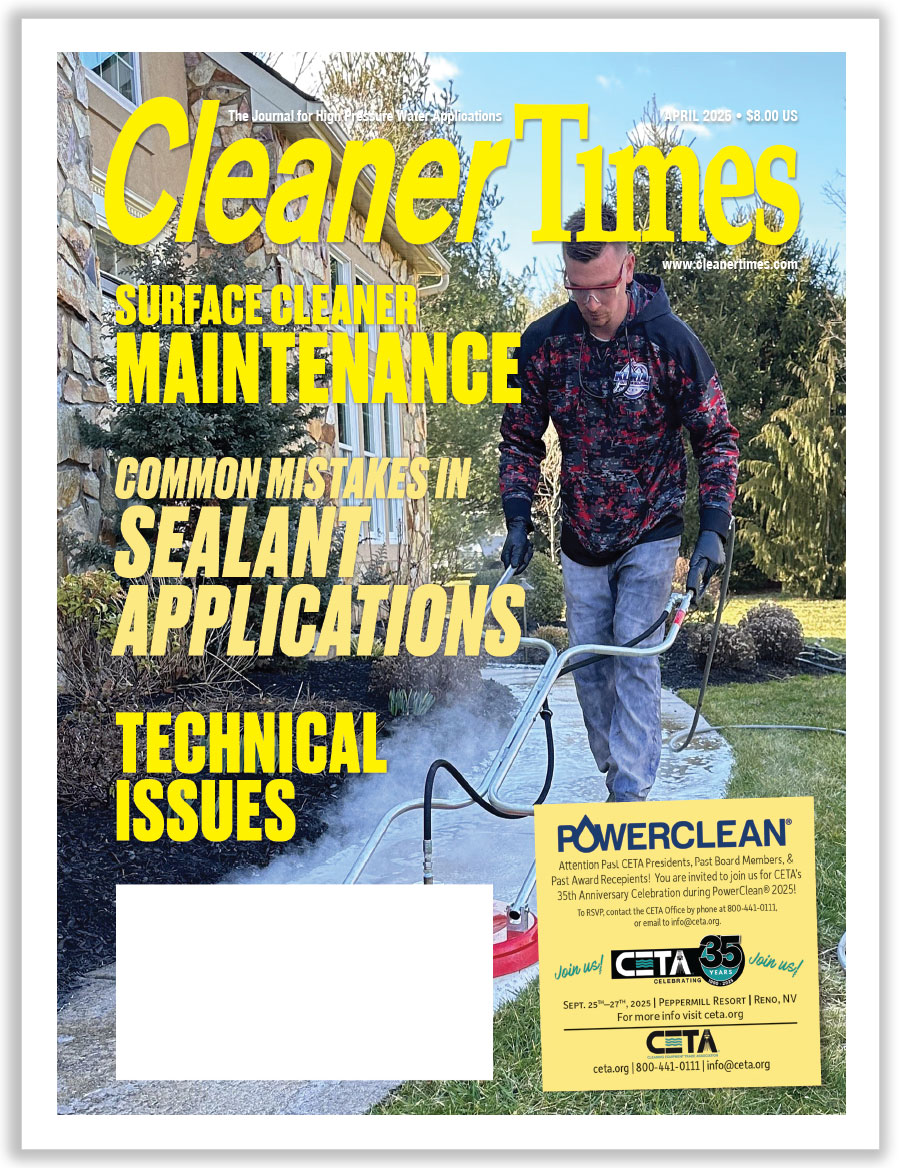
CETA Edge: Leasing: An Intelligent Way to Increase Customer Purchasing
By Diane M. Calabrese / Published September 2015

E
quipment Leasing
Why do contractors want to lease equipment instead of buying it? They may have a unique need at a single job site. Or, they may lack the capital to make an outright purchase.
Why do distributors offer leasing? “We offer leasing because it is an intelligent way to increase possibilities of a customer purchasing from us,” says Bill Sommers, president of Pressure Systems Industries in Phoenix, AZ.
Recruitment of new buyers keeps a business thriving. So does retention of existing customers, who at times may want to rent equipment.
Given that requests to rent machines may be infrequent, distributors may not want to invest the time in preparing a contract template and budgeting for leasing. By tapping the services of a leasing company, a distributor can shift the responsibilities for those and other lease-related matters to outside experts.
Leasing services provide contracts for different kinds of leases and conduct credit checks on prospective lessees. Such service companies not only assist the distributor who is the lessor, but they can give the lessee assistance with making a choice among lease types.
We are a long way from the time when a transaction was structured on good faith and a short form of written terms. Lease agreements are complicated. The intricacies of the documents add to the complexity of leasing; and dealing with the paperwork extracts time from a business.
A leasing company also aids the distributor with lease-to-purchase options, if the distributor wishes to add them to the contract. The options can range from fair market value for the equipment at the end of the lease to a simple, low-fee purchase at the end of the lease.
The most exacting lease may still not be enough to prevent all problems. Things happen. As an example of the “what could go wrong,” says Sommers, he shares an account of a series of unfortunate—and definitely unpredictable events—that happened to him. “A young man and his-soon-to-be wife, both whom worked for his father in the father’s business, wanted a trailer mount to go into business with—and he had his dad available as a company he could begin cleaning for.”
In this instance, Sommers was working with a third-party company for the leasing particulars. “Operating with a local leasing company everything was set up with assurances that the lease was going through, therefore the machine was prepared and sitting in my shop until all papers were signed.”
Thoroughness in this case was what it always is, a good thing, but unexpectedly caused a problem. “The leasing company required some additional information and that was taking a bit of time,” explains Sommers. “The young man came to me and asked if he could take the unit as he had a job that weekend, so I let him have it.”
Allowing the machine to leave without the lease being in effect shows a generosity of spirit and trust that we all wish pervaded the world, but it happened things did not go smoothly. Well, at first everything did proceed as promised. “About two weeks after the machine left the premises, the lease company said all was good and the check was in the mail and it arrived,” says Sommers.
A snag was hit the same day the check arrived. “My daily procedure was to make deposits at the end of the day on the way home,” says Sommers. “Three blocks away from the bank a propane truck was lying on its side across the off-ramp of the freeway blocking traffic with flashing lights all over the place. I quickly circumvented the problem and tried to get to the bank from the other side but was thwarted.”
It did not seem like a major delay to wait a day on deposits. “Oh well, tomorrow,” says Sommers. Tomorrow came with a surprise.
“The next day I received a notice that the lease was rescinded because of additional problems with the young kid’s credit,” says Sommers. “There I was with a worthless check and a portable pressure washer nowhere in sight. Some kind of adage about counting chickens prevailed, or, don’t count your money.”
There is an as good-as-possible ending to the story. “I finally got a used trailer and machine back about six weeks later,” says Sommers. It was thanks to the father of the lessee.
Not The Old West
One too many westerns tell us that the livery stable would let carriages and horses without payment in advance. A verbal agreement and a handshake would do.
In 2015, informality in an agreement between a lessor and lessee is not easy to find, although it does exist when ties are strong and long. Most agreements read like legal documents because they are.
Just how much protection a lease agreement gives a distributor should something go wrong is another matter. The agreement generally provides good protection for a distributor should the equipment be misused or damaged; and the distributor will be able to collect the amount required to make the equipment whole.
Similarly, if a machine is stolen, and the lessee can document the theft, has made a police report, and so on, the distributor should be able to collect the insured value of the equipment. Theft of and damage to a leased machine are not huge worries, then.
A lessee that causes injury (to self or others) could be a big problem for a distributor. And a lessee who allows an unauthorized person to use the machine with the result being injury to someone also poses an enormous potential problem.
Assuming that a distributor does all due diligence in training a lessee in the proper use of rental equipment, the distributor can get protection from any lessee action by including waiver of subrogation and waiver of liability clauses in the signed agreement. It’s all very tricky, however.
For example, if an erratically behaving individual rents a pressure washer and then uses it to damage private property—or worse, the distributor may be called to answer why the agreement was signed. On the other hand, if equipment is available to lease, not entering into an agreement with someone who meets credit criteria could be a violation of fair commerce laws.
Here’s another way to look at it: No rental agreement encompasses every eventuality. But a solid agreement gives maximum protection. The probability of someone using a pressure washer as a weapon is almost nil. If a lessee did do so, the lessor whose good intent in making the rental—i.e., believed the machine would be used for its designed purposes, would be unlikely to be assigned any responsibility in legal proceedings.
Contractors that rent often move on and buy equipment. That’s perhaps the top reason for making rentals—difficulties included—available.
Rentals also give distributors the opportunity to put high-end equipment and new technologies in the hands of contractors who get a trial period for which they pay. If they like the performance of the rented equipment, they are likely to decide to buy when they have the capital.
Just take time to get the rental agreement right. The assistance of an expert—leasing consultant, leasing company, or lawyer—is the best way to go.




